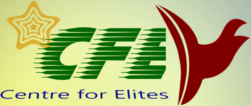COURSE AIM
The Communication and Study Skills syllabus aims to equip students with ample skills for academic and professional communication and provide knowledge of relevant techniques of studying for tests or exams.
OBJECTIVES
At the end of the course, students should be able to:
- Demonstrate mastery of the various study and communication skills
- Explain the appropriate communications strategies and techniques
- Use English in speech and writing
- Compose various categories of business letters
- Design a study plan
- Develop better reading & vocabulary skills
- Apply successful test taking strategies
- Develop effective strategies to better utilize class time
- Analyse and apply individual learning styles
- Work in an online learning environment for greater University success
- Analyse and apply critical thinking techniques
- Demonstrate effective communication within the college/University setting
Course Content
Communication
Definitions of communication
Verbal and non-verbal communication
Written and oral communication
Communication process
Communication in organizations
Communication barriers
Effective communication
Listening
Public presentations
Communication Theory
Definitions of language
Concept of communication
Contexts of human communication
Media and channels of communication
Mental processes in communication
Barriers to communication
Facilitators of communication
Using the Library
Locating books, journals and articles
Accessing literature on the internet
Judging the relevance of books and articles
Using reference books e.g. encyclopaedia
Compiling an annotated bibliography
Effective Reading
Skimming
Scanning
Note taking
Note making
Parts of speech
Definition
Parts (nouns, verbs, adjectives, adverbs pronouns etc)
Punctuations
Sentences
Prefixes and suffixes
Paragraphing
Business letters
Definition
Formats
Types of business letters
Circular letter
Memorandums
Notices
Reports
Definitions
Types of reports
Formal and informal reports
Memo reports
Meetings
Definitions
Types of meetings
Agenda
Minutes
Duties of a chairperson and the secret arty
Interviews
Definitions
Types of interviews
How to conduct interviews
- Curriculum Vitae
- Studying Strategies
- Introductions/Blackboard/Connect/Email
- What is to study
- Reading techniques (Skimming, Scanning)
- Note taking
- Summarising the text
- Preparation for the exams
- Memory and forgetting
- Writing the Academic essays/ Assignments
- Library & Campus Resources (Learning Communities)
- Time Management
- Learning Styles & Effective Studying
- Test and Exams Taking Skills
- Staying Healthy Mentally & Physically
- Registration Information
- Tools for Academic Success
- Your Major & Your Career
Teaching approach
3 Hours of lectures per week
2 hours Seminar per week
I hour of tutorial per week
ASSESSMENT
CONTINUOUS ASSESSMENT 40%
3 Assignments per year 20%
3 Tests 20%
Tutorials 10%
FINAL EXAMINATION 60%
Total 100%
PRESCRIBED READINGS
Murphy. R. (2004). English Grammar in Use. 3rd Edition. Cambridge University Press. The Edinburgh Building, Cambridge CB2 8RU, UK.
Staton. N. (2004). Mastering Communication. 4th Edition. Palgrave macmillan. Houndmills, Basingstoke, Hamshire RG21 6XS
Klarer, M. (2007). Meetings auf Englisch. Heidelberg: Redline.
Hackman, M. Z., & Johnson, C. E. (2009). Leadership: A communication perspective (5th ed.). Long Grove, IL: Waveland.
RECOMMENDED READINGS
http://wps.pearsoned.co.uk/ema_uk_pp_studyskills/
http://www.palgrave.com/studentstudyskills/page/index/
Allen, J. P. B., and Corder, S. (1978). The Edinburgh Course in Applied Linguistics, Volumes 1, 2, 3, Oxford University Press. Oxford.
Druce, E. And Tyson. H. (2007). English A1: Course companion. Oxford University Press. Great Claredon Street, Oxford OX2 6DP. Swan. M. (2005). Practical English Usage. Oxford University Press. Great claredon Street, Oxford.
